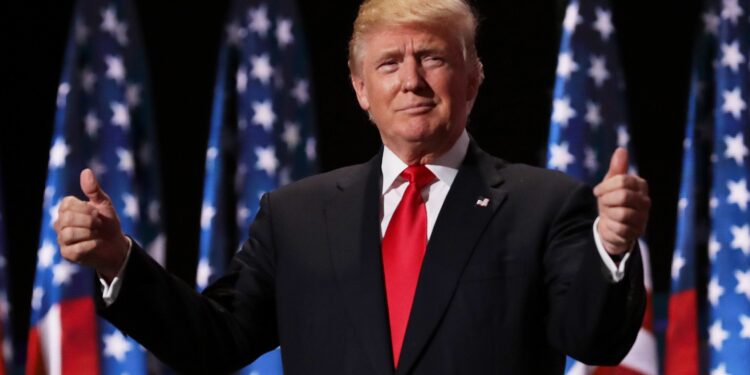As US President-elect Donald Trump gears up to take office in January, several of his key cabinet nominees are already facing intense scrutiny over various allegations and controversies. With the Senate confirmation hearings just around the corner, Trump’s picks for top administration roles, including defense secretary, attorney general, and health secretary, are caught in a storm of accusations that could complicate their paths to official appointments.
One of the most high-profile figures facing controversy is Trump’s nominee for defense secretary, Pete Hegseth. Hegseth, a veteran of the Afghanistan and Iraq wars and a former Fox News host, has been under the spotlight following revelations of a sexual assault allegation from 2017.
According to police records, Hegseth was investigated over the incident in California but was never arrested. He has denied any wrongdoing, with Trump’s spokesperson, Steven Cheung, stating that the nominee “vigorously denied all accusations” and emphasized that no charges were filed against him.
The controversy surrounding Hegseth doesn’t stop there. Reports from CBS, a partner of the BBC in the US, indicate that Hegseth had been flagged by fellow military personnel as a potential “insider threat” due to his tattoos, including one that reads “Deus Vult” a Latin phrase meaning “God wills it,” commonly associated with Christian crusaders.
The tattoo raised concerns about possible extremist connections. Retired Master Sergeant DeRicko Gaither expressed worry, stating he had reported the tattoo to his superiors due to its ties to white supremacist groups. Hegseth, however, has dismissed these claims, asserting that the tattoo simply represents a Christian motto with no extremist affiliations.
Amid the backlash, Vice President-elect JD Vance defended Hegseth, accusing media outlets of anti-Christian bias. He emphasized that the Latin phrase should be viewed in the context of its religious origins rather than as a symbol of extremism. Nonetheless, Hegseth’s tattoos reportedly contributed to his exclusion from security duties during President Joe Biden’s inauguration in 2021.
Trump’s nominee for attorney general, Matt Gaetz, is also battling serious misconduct allegations. Gaetz, a former Florida congressman, resigned from his seat shortly after Trump announced his nomination. The resignation halted the release of a congressional report detailing accusations of sexual misconduct, illicit drug use, and misuse of campaign funds. Although the Department of Justice investigated these claims last year and chose not to press charges, the allegations continue to shadow Gaetz’s confirmation process.
The call for transparency has grown louder, with an attorney representing two women who testified against Gaetz urging Congress to release the House Ethics Committee report. Joe Leppard, the attorney, stated that one of his clients had witnessed Gaetz engaging in sexual activity with an underage girl in 2017.
Gaetz has repeatedly denied the accusations, describing them as “lies weaponized” against him. Despite bipartisan calls for the report’s release, House Speaker Mike Johnson has requested that it remain sealed, citing Gaetz’s departure from Congress as a reason.
Another controversial figure among Trump’s cabinet nominees is Robert F. Kennedy Jr., selected to lead the Department of Health and Human Services. Kennedy, known for his outspoken criticism of vaccines, has faced significant backlash from the public health community.
His appointment has already sent shockwaves through the healthcare industry, with shares of major vaccine manufacturers and pharmaceutical companies dropping sharply in response to the news.
Kennedy’s vocal opposition to vaccines has drawn criticism from health professionals, who warn that his views could undermine public health initiatives. George C. Benjamin, head of the American Public Health Association, argued that Kennedy’s appointment was a grave mistake, given his history of promoting vaccine skepticism. Benjamin emphasized that Kennedy’s stance could erode trust in immunization programs, potentially causing harm to public health efforts.
Trump’s nominees are expected to face rigorous questioning during Senate confirmation hearings. Although Republicans hold a majority in the Senate, the bipartisan nature of the hearings could still pose significant challenges for some of the candidates. Lawmakers from both parties have already expressed concerns over the controversies surrounding these nominees, and intense scrutiny is anticipated.
The debates over the nominees’ suitability for their respective roles could delay their confirmations, forcing the incoming Trump administration to navigate a challenging start. Critics argue that the president-elect’s choices reflect an intent to appoint loyalists rather than qualified individuals, risking the politicization of critical government positions.
Despite the ongoing controversies, Trump remains committed to his cabinet picks and has not publicly addressed the criticism. He is still in the process of filling several key positions, including the FBI director and treasury secretary, with further announcements expected in the coming weeks. The unfolding Senate hearings will be a test of how much political capital Trump is willing to spend to get his preferred candidates confirmed.


































